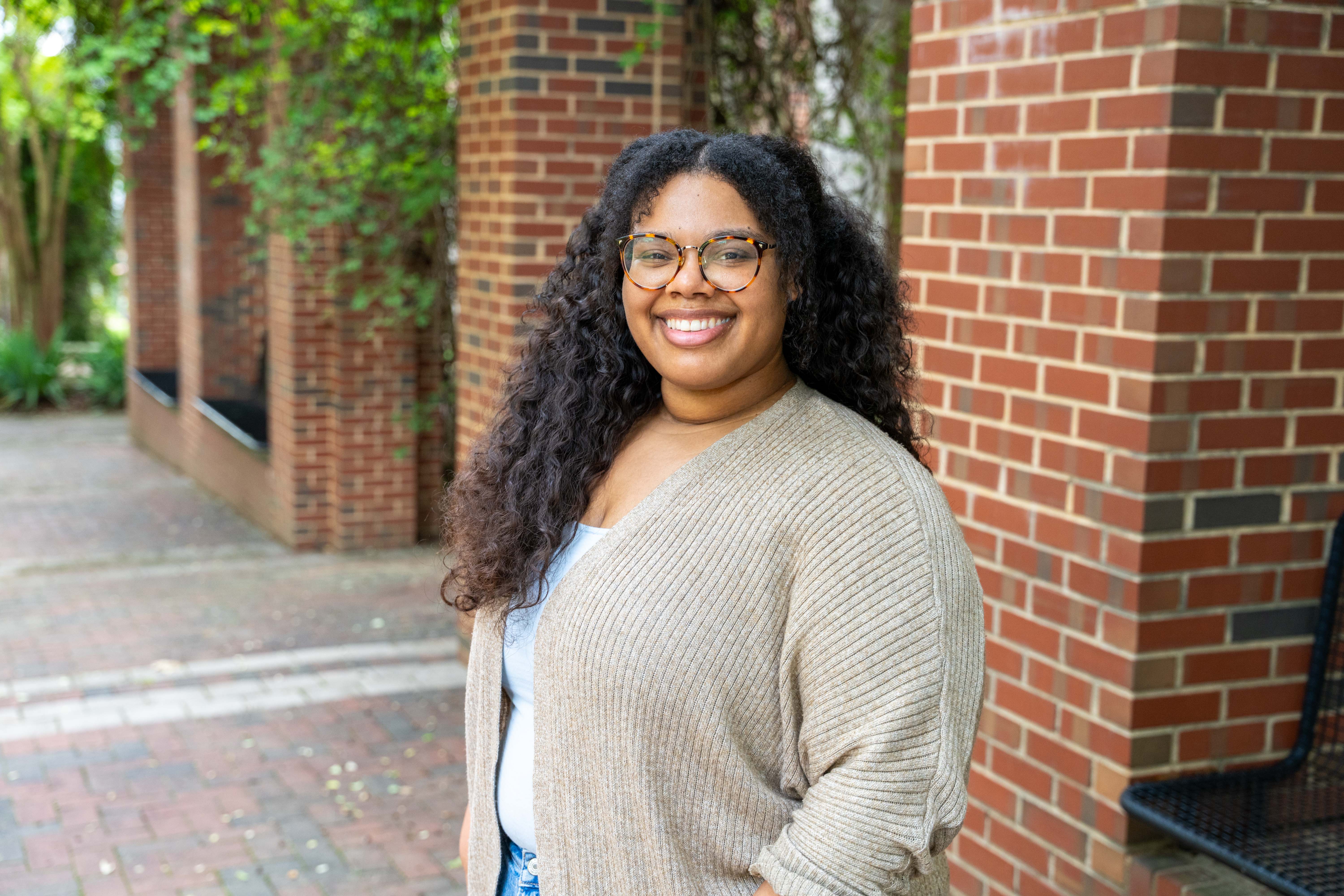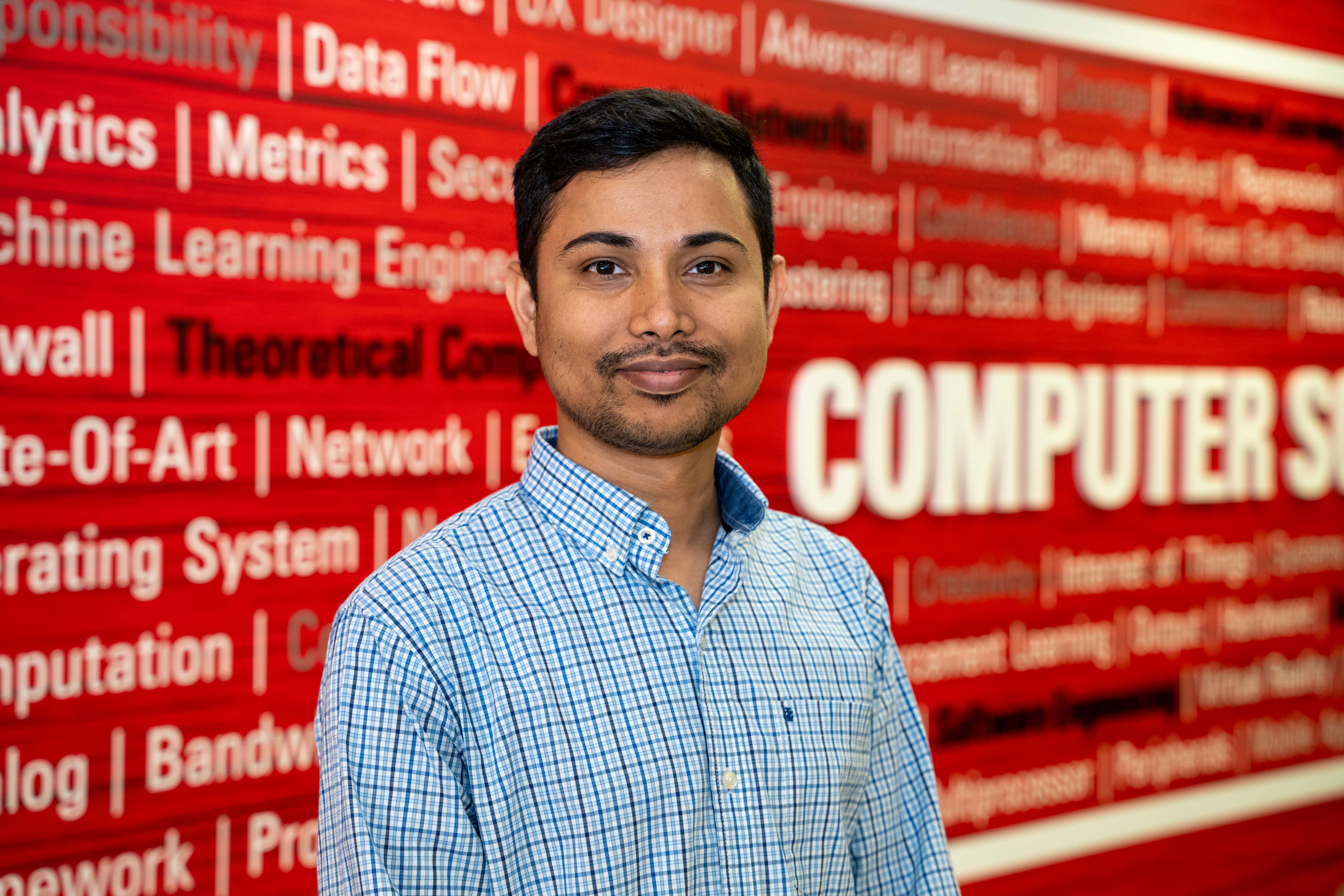CSC News
CS Graduate Students Shine in College of Engineering Scholar of the Year Awards
NC State University’s College of Engineering recognized seven graduate students with 2024-25 Scholar of the Year awards. The awards, which are given by the college’s Office of Graduate Programs, come with a monetary gift and certificate from the college. Students were nominated by their respective departments for their outstanding scholarly achievements, community impact and dedication to NC State.
Erynn Dameryl Elmore, Citizenship and Service
 Erynn Dameryl Elmore, who graduated with a Ph.D. from the Department of Computer Science (CSC), has made invaluable contributions to her field that are unique not only due to her compassion and intersectional approach, but for her vision for the future of STEM education.
Erynn Dameryl Elmore, who graduated with a Ph.D. from the Department of Computer Science (CSC), has made invaluable contributions to her field that are unique not only due to her compassion and intersectional approach, but for her vision for the future of STEM education.
Elmore, who first earned her master’s degree in computer science at the College of Engineering at NC State, completed her thesis on what supports young Black girls need to succeed in the field of computer science. She developed an extensive curriculum for Black students to learn more about STEM careers and to advocate for support for themselves.
Additionally, during her time at NC State, Elmore designed a cybersecurity curriculum for middle school students and assessed AP Computer Science A curricula for effectiveness, inclusivity and accessibility of instructional materials.
Vinson Williams, Leadership
In his time at NC State, Vinson Williams, a Ph.D. graduate from the Department of Mechanical and Aerospace Engineering (MAE) showed a capacity for natural leadership and research in the field of aerospace engineering.
Williams was a research project manager in the MAE department, where he researched the effects of orientation and generator properties of a coaxial turbine marine energy harvester. In this role, he and his team prepared a research proposal, a test plan and a budget for the Department of Energy.
Williams was the experimental electrical lead, a research mentor and a graduate research assistant in the MAE department.
Hyeonjin Kim, Research
As a Ph.D. student in the Department of Electrical and Computer Engineering (ECE), Hyeonjin Kim demonstrated broad research capabilities within his field and an unwavering commitment to advancing data-driven methodologies for power system analysis and smart energy systems. His extensive publication record includes four journal papers and four peer-reviewed conference papers in addition to two journal papers he currently has under review.
His innovative research focused on smart meter data analysis, load disaggregation and analysis of distributed energy resources. Outside of NC State, Kim completed internships with Pacific Northwest National Laboratory and the Electric Power Research Institute.
Abdullah Al Arafat, Research
 CSC Ph.D. graduate Abdullah Al Arafat has been the primary or co-primary contributor to more than a dozen high-impact publications, all on top of his contributions as a graduate research assistant, course instructor and student at NC State.
CSC Ph.D. graduate Abdullah Al Arafat has been the primary or co-primary contributor to more than a dozen high-impact publications, all on top of his contributions as a graduate research assistant, course instructor and student at NC State.
In just the last year, Al Arafat wrote papers for the International Conference on Embedded Software, the Conference on Computer and Communications Security and the 18th European Conference on Computer Vision.
His main interest is in secure and resilient real-time cyber-physical systems. His Ph.D. dissertation about ensuring the functional and temporal correctness of safety-critical Cyber-Physical Systems (CPS) bridged theoretical advancements with practical solutions for resilient real-time systems, robust learning and formal verification.
Farah Alsafadi, Scholarly Achievement
Farah Alsafadi, a Ph.D. graduate from the Department of Nuclear Engineering (NE), researched deep generative modeling-based data augmentation to address data scarcity in nuclear engineering, and impressed professors with her ability to integrate artificial intelligence and machine learning techniques with nuclear engineering applications.
Specifically, Alsafadi’s research focused on uncertainty quantification and deep generative modeling for modeling and simulation of reactor systems, along with exploring deep generative models, diffusion models and graph neural networks to enhance scientific computing in nuclear engineering.
In her time as a student, Alsafadi served as a graduate research assistant in NE and a graduate research intern in the Nuclear Energy and Fuel Cycle Division at the Oak Ridge National Laboratory in Tennessee.
Weilong He, Scholarly Achievement
Weilong He maintained a GPA of 3.9 while earning his Ph.D. from the Department of Biological and Agricultural Engineering.
He contributed to the creation of: a breakthrough disease management system for high-throughput tomato disease monitoring, a lightweight deep learning model for accurate cottonseed defect classification and an innovative Swin-Roleaf method for characterizing maize leaf azimuth angles.
Additionally, He presented his research contributions on agricultural robotics and artificial intelligence-driven phenotyping at the American Society of Agricultural and Biological Engineers Annual International Meetings.
He is also the first author on three high-impact journal articles in Computers and Electronics in Agriculture and the Journal of Field Robotics.
Abhishek Bajaj, Scholarly Achievement
Abhishek Bajaj, who graduated with his master’s in computer engineering in May 2025, held multiple internships, delivered presentations on mathematical modeling research papers and served as a board of election commissioner with NC State’s student government, all while maintaining a 3.9 GPA.
In his summer internship and fall co-op with Nvidia, Bajaj developed features for graphics processing unit (GPU) technology that would tell the user how many years of GPU silicon life is pending before the device declines in functionality.
In his spring internship with Samsung Research America, he worked on S series mobile phones, developing advanced graphics processing unit architecture models for the future generations of mobile systems.
Adapted for the NC State Department of Computer Science, original article by Nicole Zelniker, College of Engineering News
Return To News Homepage